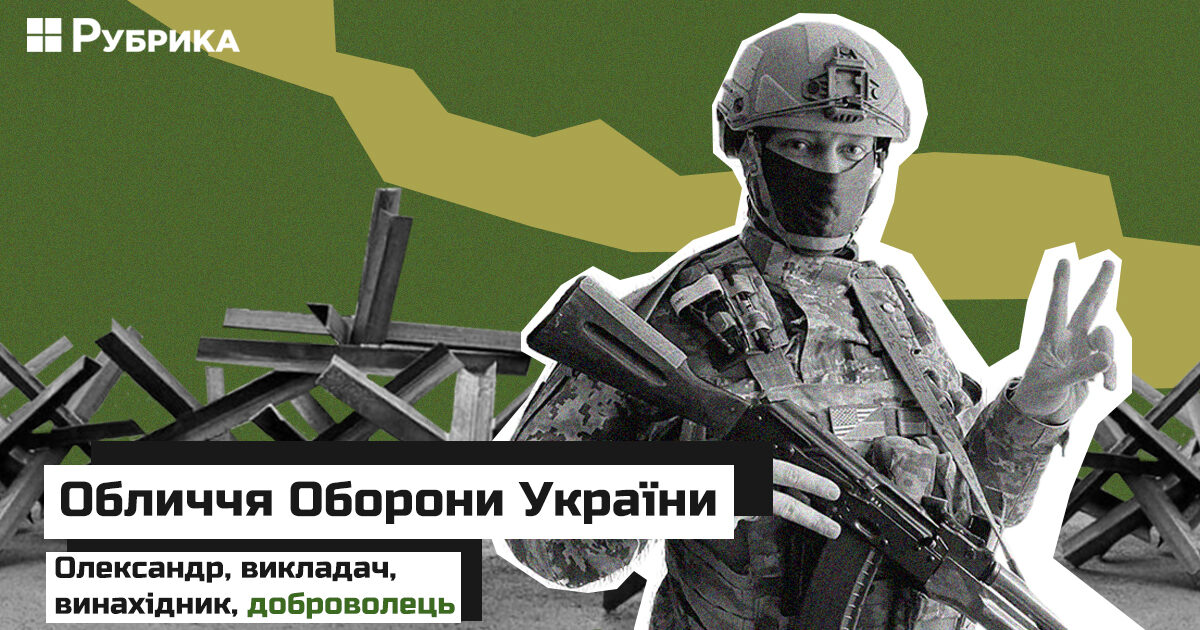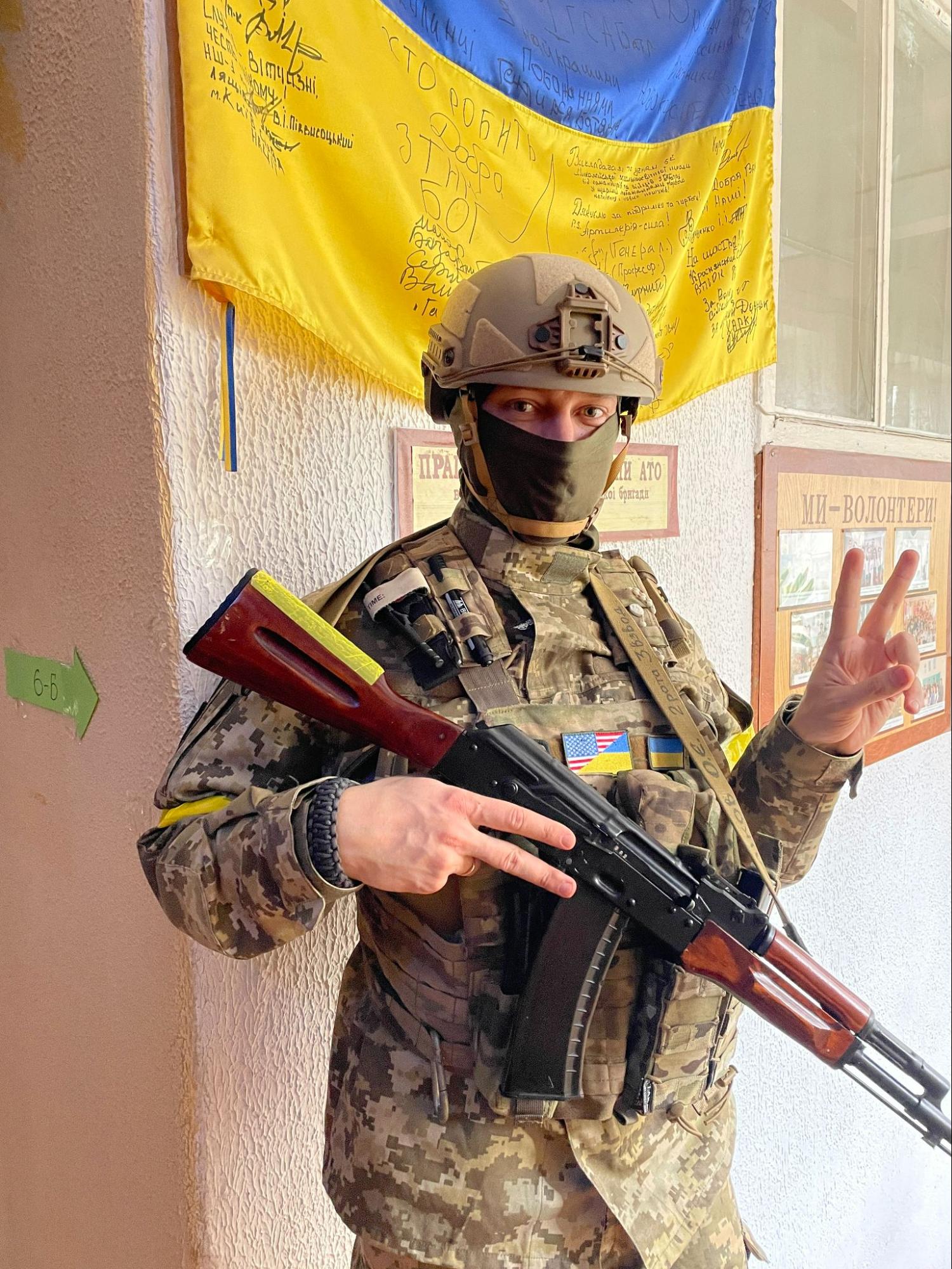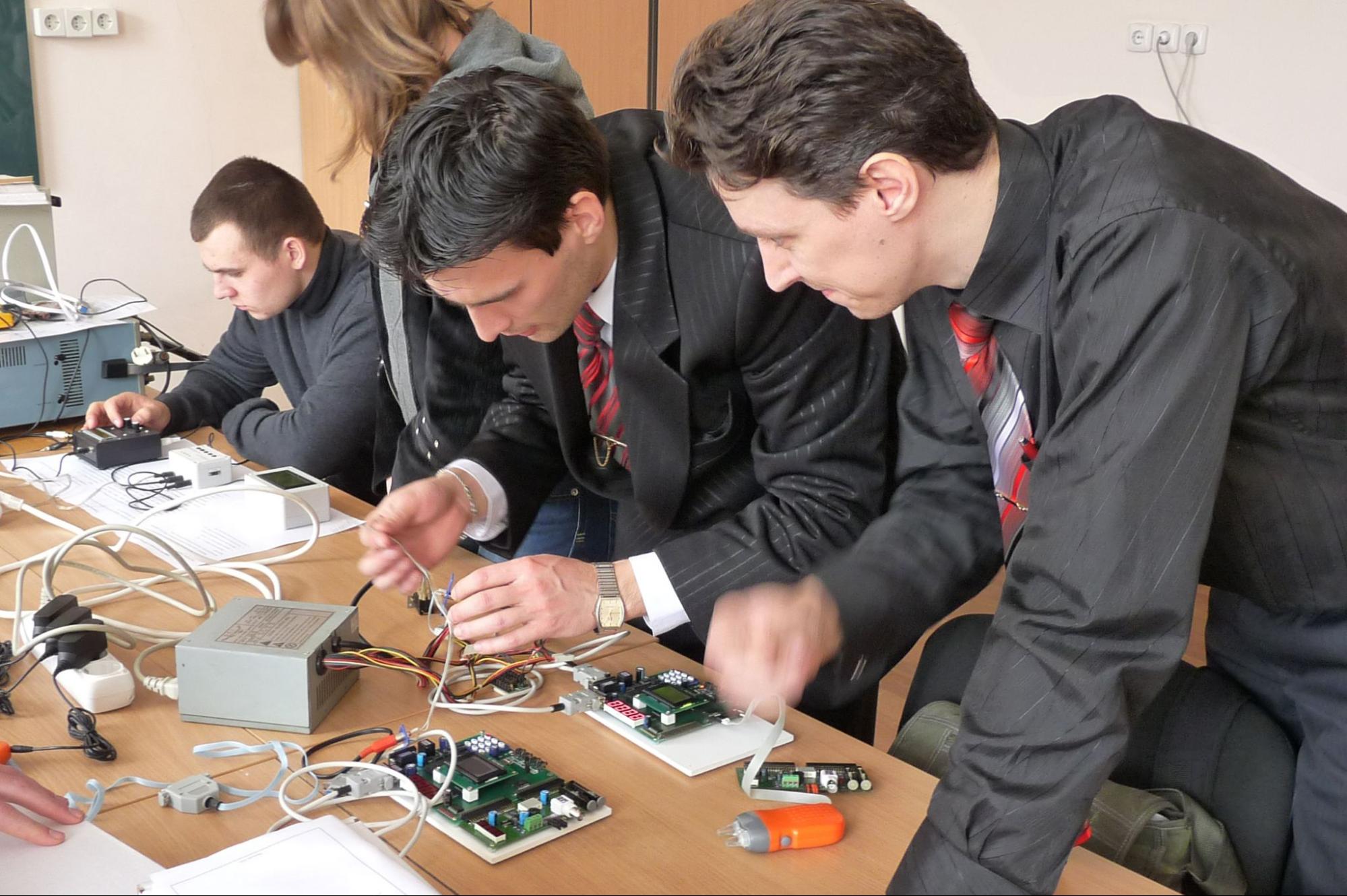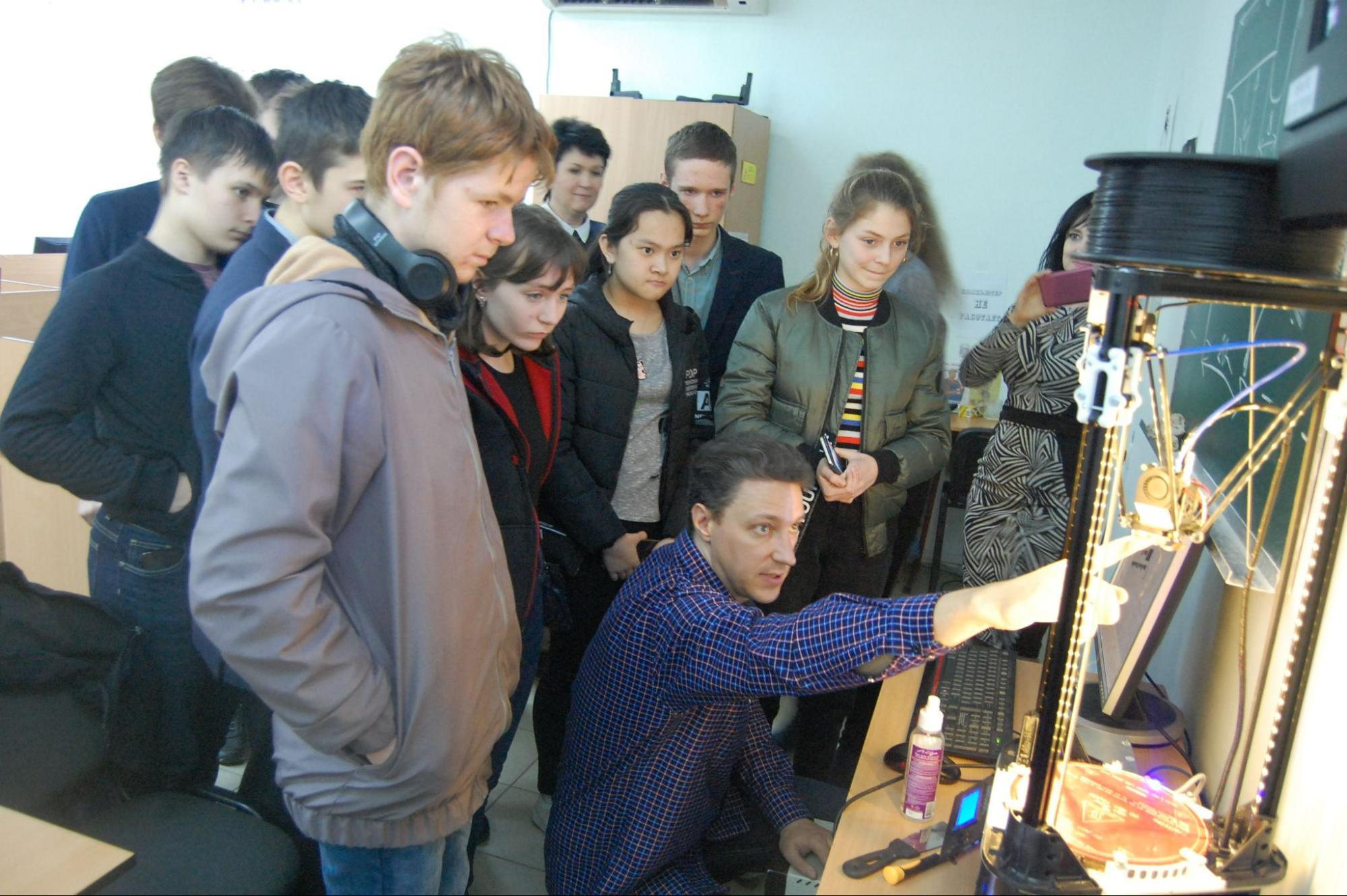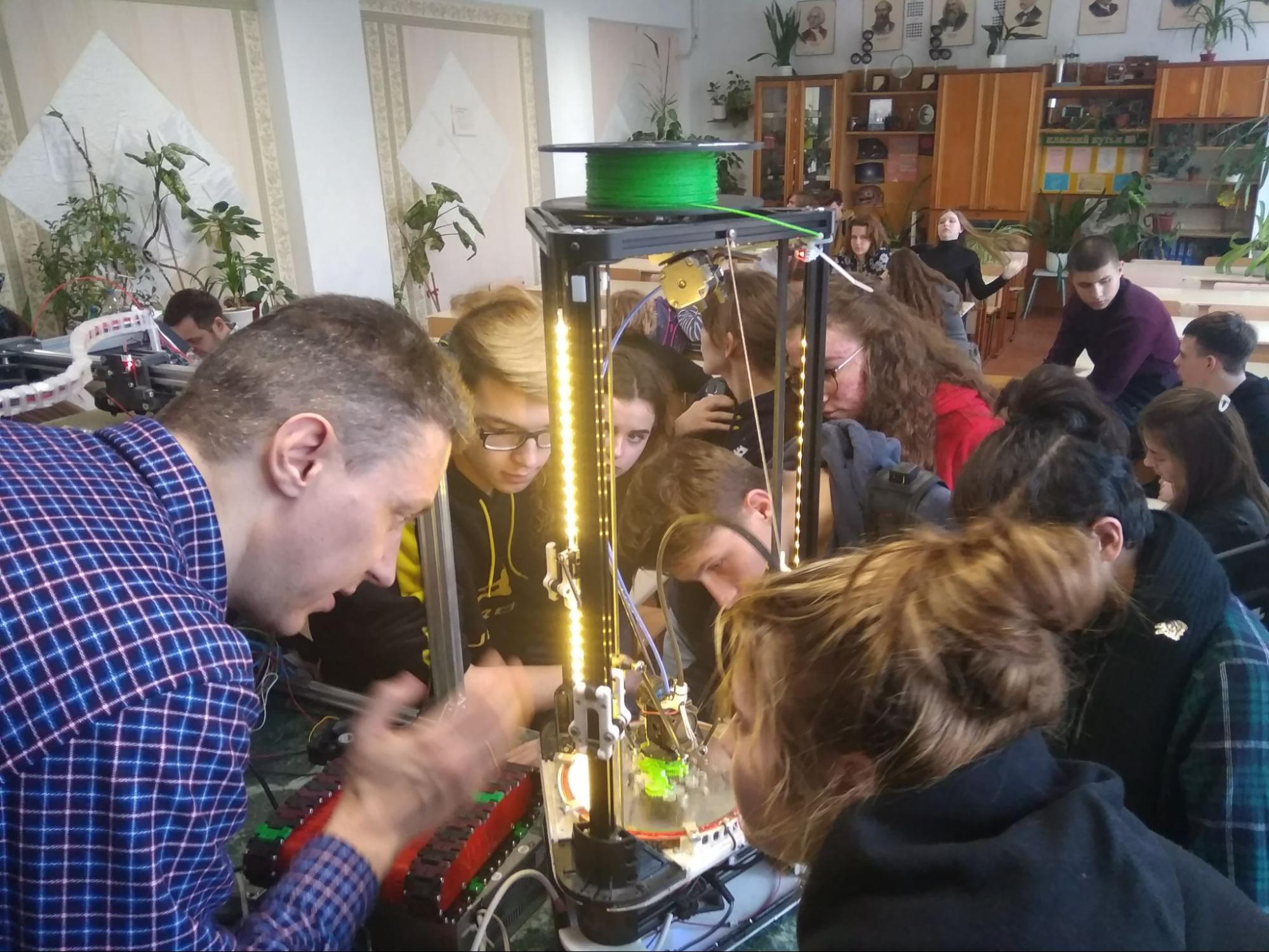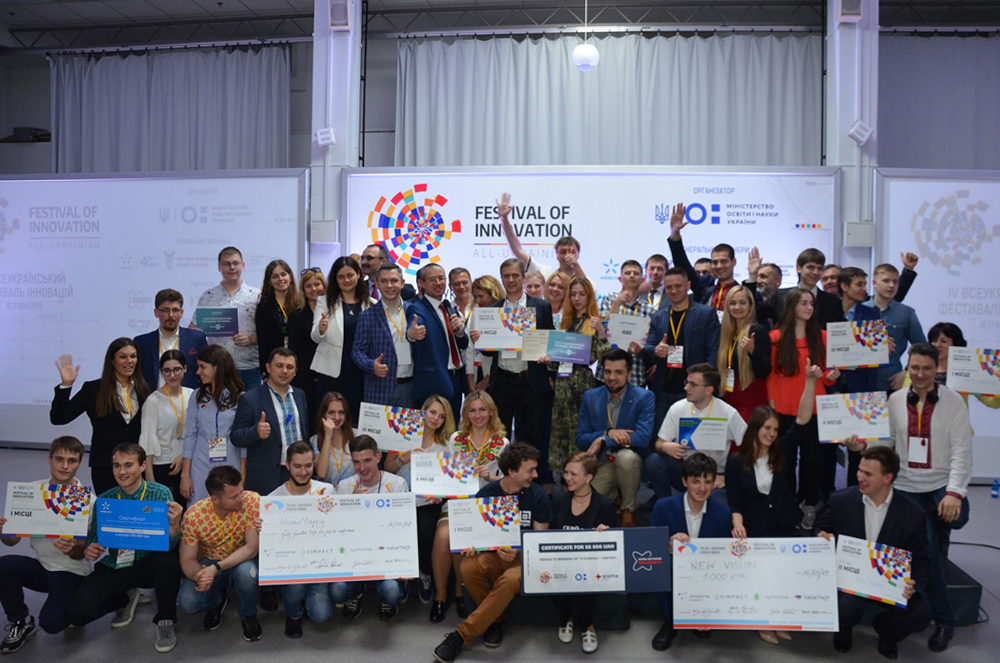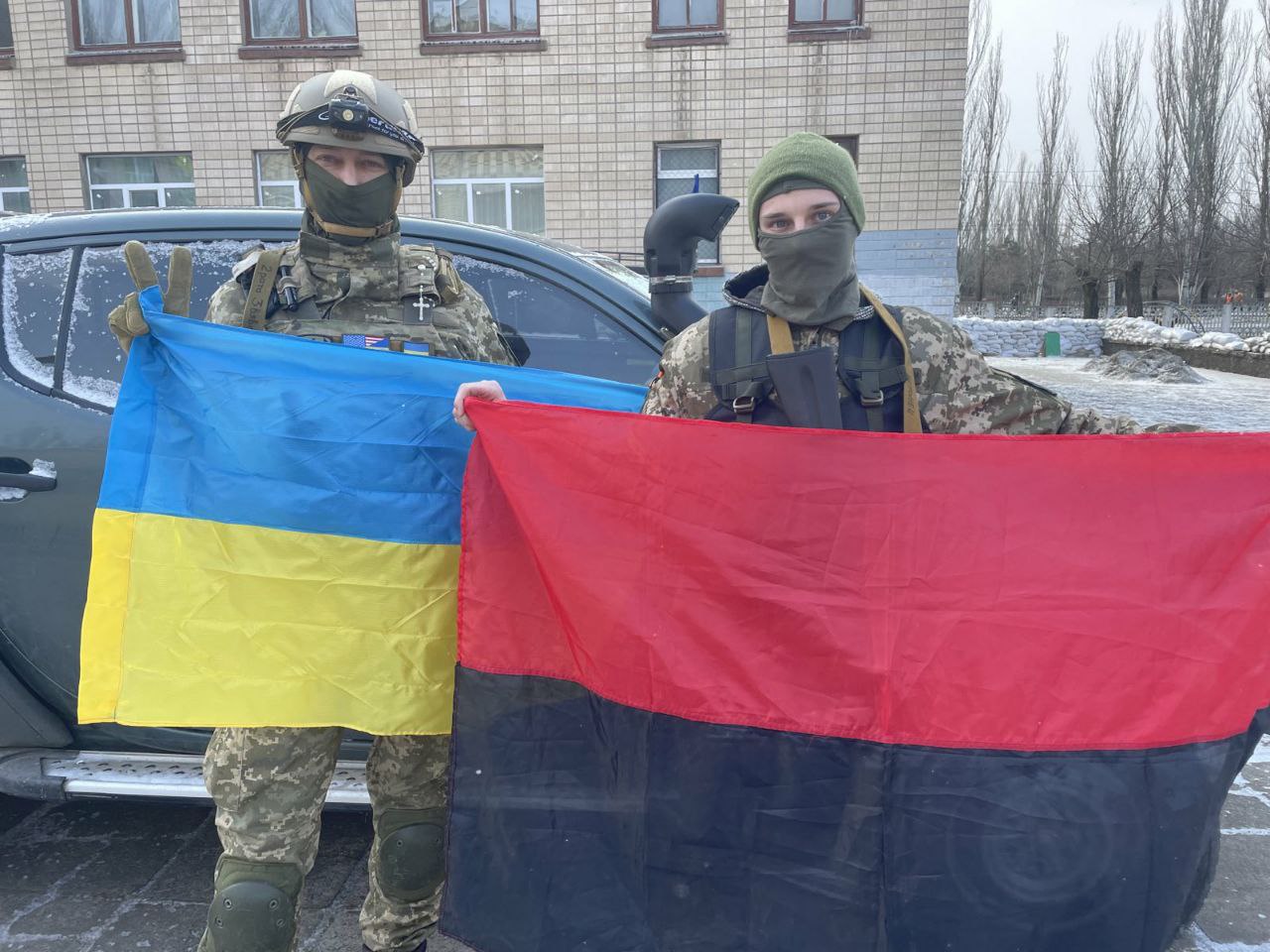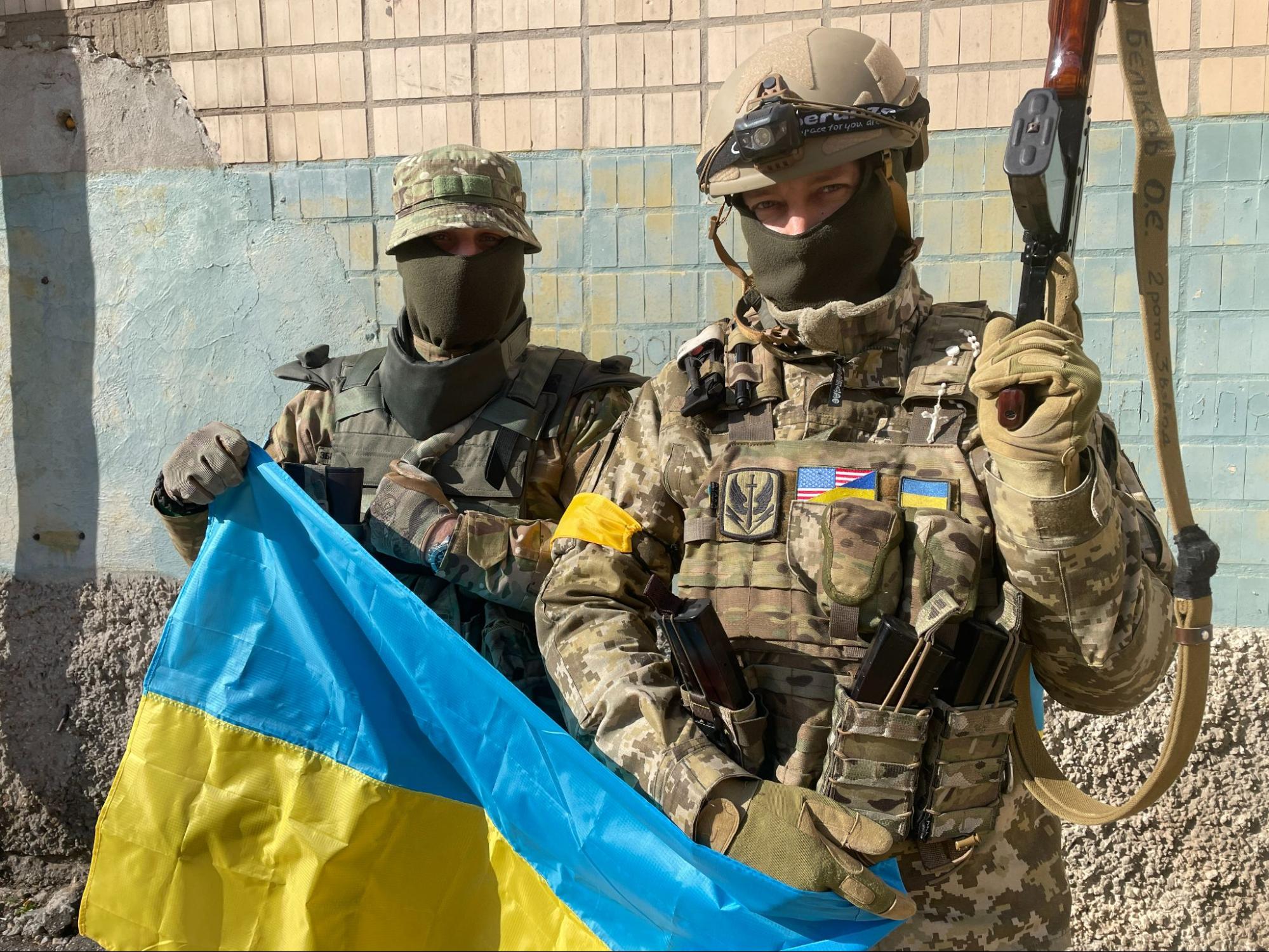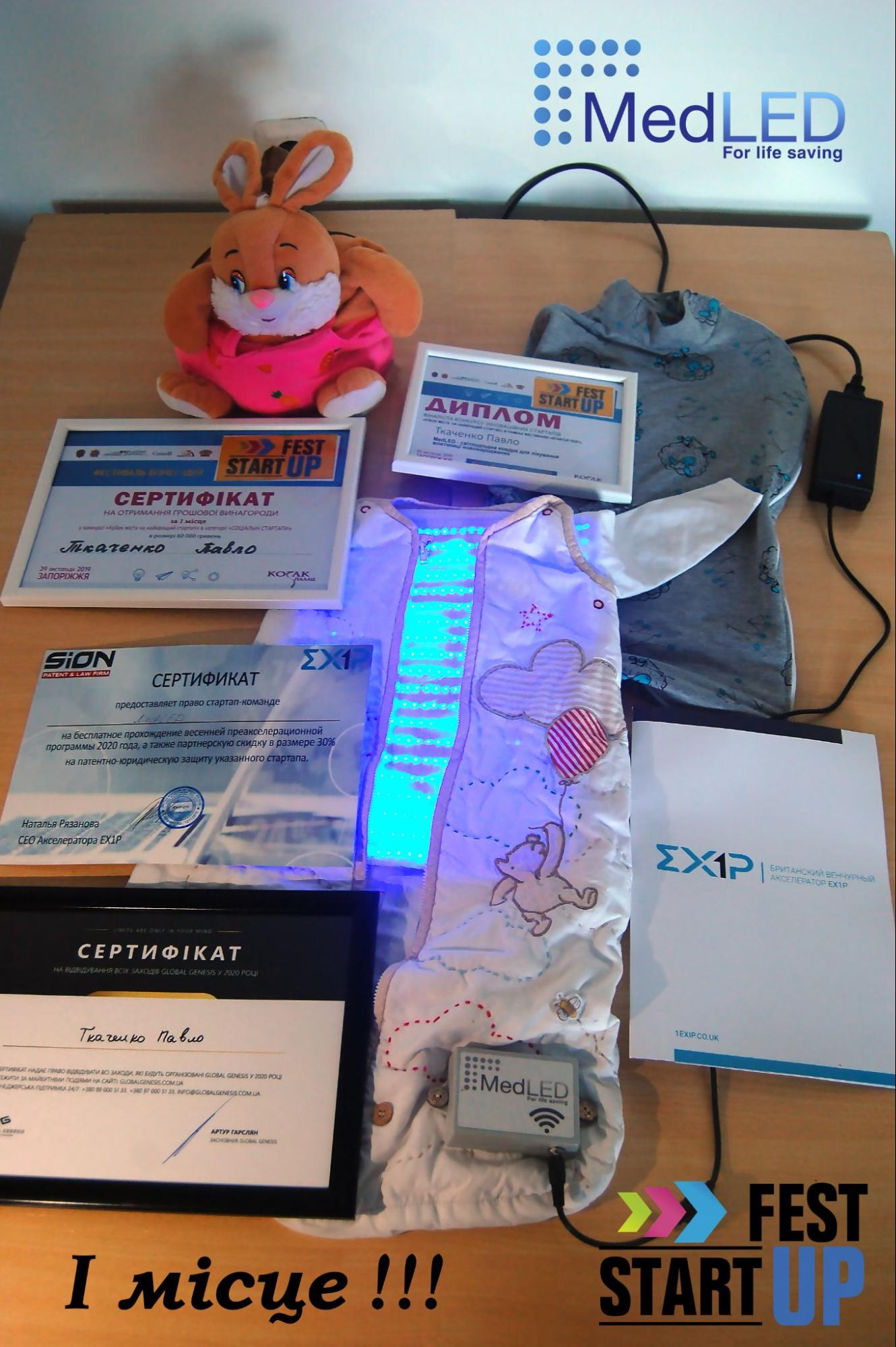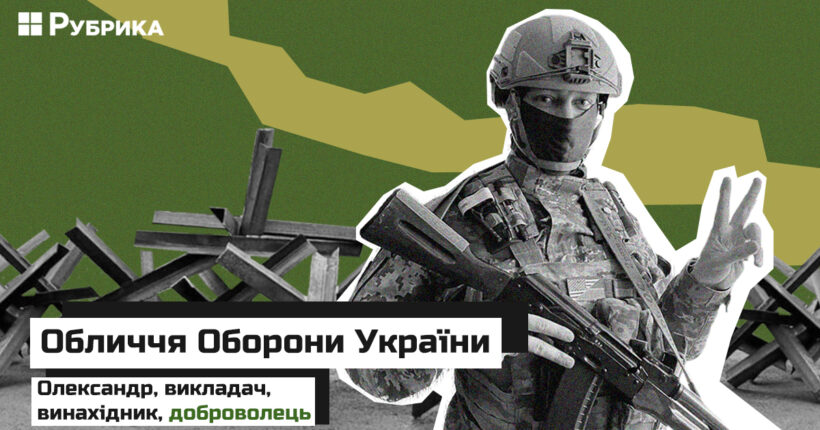
Mykolaiv inventor and professor Oleksandr Bielikov worked at the Petro Mohyla Black Sea National University laboratory before the start of russia's full-scale war. Together with students, Oleksandr received patents for 19 inventions, and the scientist's most famous invention was a blanket for newborns, which cures jaundice with light. The technology is called "light therapy"; the researcher described it in his dissertation and used it in most of his inventions. This blanket helps children and their parents and makes the first days of newborns safer for them, physically and psychologically. Now Oleksandr is helping his country differently. He fights in one of the Mykolaiv region's Territorial Defense divisions.
As a part of the Faces of Ukraine's Defense project, we asked Oleksandr what Ukrainian inventors are engaged in and how science and war are connected.
"If the world collapses, technical professionals will save more people"
Oleksandr Bielikov talks to me, not from the trench: he was taken on a trip to help defend the country in the best way he can—technically. Before that, he served for two months as a combat medic.
"At first, the guys in the territorial defense were displeased that I'm no longer serving with them. I responded to them: 'Here I perform tasks and bring benefit, and there [territorial defense] I performed tasks and brought benefits. Where is the greater benefit?' And they replied: 'Where you are now,'" the military man laughs.
In a peaceful time, 37-year-old Oleksandr is the professor of a Medical devices specialty at Mykolaiv's Petro Mohyla Black Sea National University with 15 years of experience and a part-time inventor.
"In my last year of university, I was offered to go to an active student group. We soldered something there. I often had to explain things my classmates didn't understand, but I understood. I succeeded, and at some point, I was asked if I wanted to teach," says Oleksandr Bielikov.
Before the start of the full-scale war, the scientist led a group of students, where he constantly tried to implement new technologies, which he learned about in developing robotics, 3D modeling, and more.
"Students like young teachers with whom you can talk about common topics. I was asked if I watch anime, and I do. They said: 'Wow! And what did you watch?' and here we go. When students communicate with the teacher more openly, they become more curious about communication outside of school," said Oleksandr Bielikov.
Oleksandr sees the mission of teaching in this: helping young people form and choose a future profession, engaging them in technical specialties, and encouraging the patenting of inventions. After all, defending Ukraine is not just about the military aspect. It is also about development:
"Why work at a university if you don't do anything to make things better in the country? We have a serious problem after the Soviet rule: people are used to worrying about what other people are thinking about them. It used to be that you go to kindergarten, in kindergarten, you're told that you'll go to school. The school says you'll go to university; the university says you'll go here or there. Now the situation has changed: after the university, no one guarantees you a job. I believe if the world collapses, technical professionals will help more and save more people."
"Give me some russian soldier!"
Back in 2014, Oleksandr Bielikov felt ready to defend the country.
"It all started with the beating of students on the Maidan. Then I thought: what if my students or children were there? My father is a russian by nationality, and when he found out that I had received a passport and registered myself as a 'Ukrainian,' he told me, 'How could you do that?'" Oleksandr recalls.
The man was drafted into the Ukrainian Armed Forces in the same year but was not accepted because he was a professor and already had three children. Despite this, Oleksandr helped as much as he could and took part in developing the army's technical means.
"On the eve of the invasion, a friend wrote to me: get ready and pack up. He showed me a lot. A few months before that, he and I went to the training ground and trained at the shooting range. I also attended first aid courses at the university and had a full medical examination certificate," Oleksandr Bielikov continues.
He was confident that the army wouldn't take him in the first wave of mobilization due to a lack of experience. But on February 25, a call came from the military registration and enlistment office.
"They called and said, 'Come.' They immediately sent me to the officer, who looked at my documents, grimaced, and said, 'What will I do with you scholars?' He said to enlist in the territorial defense. The division I joined rejoiced after hearing I finished first aid classes and registered me as a combat medic. That's how I found myself in the place where I serve now," Oleksandr sums up.
The man says the combat medic doesn't need special education. If a patient has heavy bleeding, the medic's task is to stop it immediately; if the heart is not beating, the doctor needs to do indirect cardiac massage or artificial lung ventilation. Another, no less necessary task is transporting the wounded to medical professionals.
Due to the lack of specific skills in the unit, Oleksandr and his colleagues organized lectures and practical classes in their spare time:
"Someone showed shooting tactics, and I, as a combat medic, taught how to use a tourniquet," he explains.
Oleksandr also lackssome skills:
"I'm still working on dropping on the ground immediately. But I know how to do it better than before. The first time the russians shelled our positions, I was in the trench. Then we watched remotely as the enemy plane attacked us with carpet bombing. It was far away but felt worse than what was coming at us. So, here we were; Denys, who served in the anti-terrorist operation, said to us: 'Good first day, guys.' In a few minutes, he said, 'Good first day to me; there were no planes during the ATO.' The aviation is horrifying; when something flies, I drop to the ground as fast as possible."
From what he had to get used to, Oleksandr notes the cold and lack of sleep, but all the difficulties are overshadowed by the high fighting spirit of his fellows.
"I was fully dressed in winter uniform with several layers of clothes, and it was still cold. It's hard to choose between eating or sleeping because there's not enough time. But when we learned about the news from Bucha, it started: 'Give me some russian soldier,'" the military man said.
According to Oleksandr, the only thing that was difficult to get used to is the question of when the war will end:
"I tell everyone that the war will end soon. Two months, three months is soon; it's not five years. It will be much faster. The only question is at what price. But we have no other option. When there were the first reports on russia's mobile crematoria—how many came, how many packages were ordered—we thought it was for their soldiers, and if we destroyed a lot of them, they would fall behind. The situation in Bucha, Irpin, and other villages showed that crematoria were for us. They knew it would happen. I do not want this situation to happen again; thus, I have no choice: I must stop it for as long as possible."
When we ask Oleksandr about his plans after the victory, he talks about returning to inventions. After all, it will be necessary to develop Ukraine and continue moving forward. There are unique plans for Oleksandr's primary creation, a blanket that heals light. Despite the positive reviews of the invention, they can not yet use the blanket in maternity hospitals; it is hampered by the lack of a certificate, which costs 25 thousand dollars.
After the victory, Oleksandr plans to get it to participate in government procurement and tender procurement and launch mass production of blankets. According to the inventor's calculations, the price of the blanket will range from $500 to $600.
And, of course, Oleksandr plans to continue working with students, encouraging them to invent, patent, and create startups. They are the future of Ukraine. Defending it today, we must consider how we will develop after the victory.
Photos by Oleksandr Bielikov
Newsletter
Digest of the most interesting news: just about the main thing



